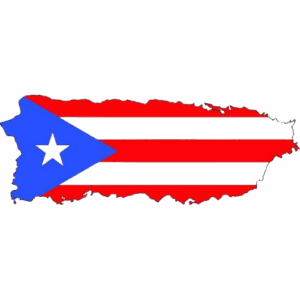Company incorporation in Puerto Rico


Entrepreneurs looking to expand into a U.S.-linked jurisdiction with unique tax advantages often turn to company incorporation in Puerto Rico as a strategic solution. It offers the legal benefits of operating under U.S. federal law, while maintaining a distinct local tax and regulatory structure.
Puerto Rico provides access to U.S. financial systems, a bilingual and educated workforce, and incentive programs designed to attract global investment. Incorporation is cost-effective, fast, and supported by modern online systems.
With the right approach, setting up a business here can serve as a powerful platform for international growth, operational efficiency, and long-term asset protection.In the sections ahead, we’ll cover the key advantages, legal steps, timelines, and requirements involved in incorporating your company in Puerto Rico, so you can make informed decisions from the start.
On this page
Fast facts about doing business in Puerto Rico
Puerto Rico is a U.S. territory with its own fiscal autonomy, offering access to the broader U.S. market while maintaining distinct financial policies. The economy is diversified across manufacturing, pharmaceuticals, tech, and services. With a Gross Domestic Product (GDP) exceeding $100 billion and strong links to international trade routes, Puerto Rico is positioned as a gateway for business between North America and Latin America.
Puerto Rico follows U.S. federal law, but applies its own local corporate tax system. This dual structure creates strategic advantages for companies looking to minimize tax exposure while remaining within a familiar legal framework. Entities can qualify for Act 60 (formerly Acts 20/22), offering corporate tax rates as low as 4%, plus potential exemptions on dividends and capital gains. This makes it a compelling location for U.S. citizens and international founders alike.
Why Puerto Rico is a top destination for incorporation
Incorporating in Puerto Rico gives businesses a competitive edge: access to U.S. intellectual property protections, banking infrastructure, and legal certainty, combined with a distinct tax code and regulatory independence.This unique status allows companies to operate in global markets while maintaining a favorable corporate structure on the island.
Unique jurisdiction with access to U.S. legal and trade systems
Puerto Rico benefits from full access to the U.S. Postal Service, court system, and currency, all while preserving its own corporate registry and business regulations. It provides the rare advantage of global positioning without full federal tax exposure.Businesses incorporated here can contract, litigate, and bank under U.S. standards, giving them confidence and flexibility across jurisdictions.
Attractive tax incentives and bilingual business environment
Incentive programs like Export Services (Act 60) reduce tax burdens and are tailored to attract technology, finance, consulting, and manufacturing companies. These incentives are backed by multi-year decrees, offering predictability and planning security.
With a bilingual workforce (English and Spanish) and deep experience in international trade, Puerto Rico is an ideal hub for regional operations, outsourcing, and scalable service delivery.
6 key advantages of incorporating in Puerto Rico
Incorporating in Puerto Rico allows you to operate under U.S. legal protections, including access to the federal court system, banking networks, and IP rights.
This provides stability and trust for international transactions and investors.
Qualified businesses may benefit from corporate tax rates as low as 4%, with potential exemptions on dividends and capital gains.
These incentives are backed by binding tax decrees, offering long-term fiscal clarity.
Puerto Rico has a highly skilled labor pool, fluent in English and Spanish, and trained in areas like finance, tech, and operations.
This creates a business culture that supports seamless communication and scalable talent.
Puerto Rico has also seen an uptick in activity from tech startups, drawn by its legal ties to the U.S., bilingual talent pool, and attractive tax treatment for service-based and innovation-driven businesses.
The business incorporation process in Puerto Rico is efficient, transparent, and largely digitized. Most companies can incorporate and obtain a Certificate of Formation in just a few business days, with low upfront costs.
For Puerto Rico entities operating locally, U.S. federal income tax does not apply to income earned on the island. This allows for greater retention of earnings and optimized business reinvestment strategies.
Puerto Rico’s location in the Caribbean basin places it at the crossroads of North and Latin America. With advanced port infrastructure and direct air access, it serves as a powerful logistics hub for international operations.
6 common challenges for foreign founders
Puerto Rico operates under both U.S. federal law and its own local regulations. This can create confusion for founders unfamiliar with how state and territorial rules intersect, especially in areas like taxation, compliance, and reporting.
While Act 60 offers substantial benefits, qualifying for and maintaining these incentives requires precise documentation and long-term compliance. Many founders underestimate the reporting standards, residency criteria, or timing required to secure a decree.
Although many professionals in Puerto Rico are bilingual, official forms, filings, and government communications are often in Spanish.
Founders unfamiliar with the language may face delays or misinterpretations without local legal guidance.
Opening a corporate bank account in Puerto Rico can involve strict KYC procedures and local documentation. U.S. citizens may navigate it more easily, but foreign nationals may encounter extended timelines or additional vetting.
Depending on your industry, Puerto Rico may require sector-specific permits or registrations.
Founders often overlook these details when pursuing online company registration in Puerto Rico, risking non-compliance after formation.
Business culture in Puerto Rico blends U.S. formality with Latin American flexibility.
Without a clear understanding of local expectations, especially around contract enforcement, negotiation pace, or administrative timelines, foreign founders may experience friction early on.
Banking in Puerto Rico: what to expect
Opening a business bank
account
Opening a business bank account in Puerto Rico is straightforward but requires preparation. Banks will ask for your Certificate of Incorporation, EIN, and official IDs for owners and signatories.
You may also be asked to provide corporate bylaws, operating agreements, and proof of local business activity. U.S. citizens typically face fewer obstacles, while non-residents may undergo enhanced review.
U.S. FDIC banking system and local KYC requirements
Puerto Rican banks operate under the U.S. Federal Deposit Insurance Corporation (FDIC) framework, offering the same protections as mainland banks. This ensures trust, compliance, and access to the broader U.S. financial system.Banks apply strict Know Your Customer (KYC) policies, including source of funds documentation, beneficial ownership declarations, and background verification, especially for foreign nationals or complex structures.
Taxation and compliance requirements
Businesses in Puerto Rico are subject to local corporate income tax, which ranges from 18.5% to 37.5% depending on income levels and deductions. Qualifying businesses under Act 60 may reduce this to 4% or lower.Puerto Rico also imposes a Sales and Use Tax (SUT) of 11.5%, which must be collected and remitted if your business sells taxable goods or services locally. Ongoing compliance is critical to maintain incentives and legal status.
Annual reports, payroll, and withholding obligations
Corporations must file an annual report by April 15 each year. This includes updated business and officer information and may require audited financials if revenue exceeds specific thresholds.
If you hire employees, you must comply with local payroll rules, including withholding income tax, Social Security, and other deductions. Accurate reporting avoids penalties and ensures continued eligibility for local benefits.
Company registration timeline
DDEC, Department of State, Hacienda, and municipal registration
In Puerto Rico, the company formation process involves multiple agencies, including the Department of State, Hacienda (Treasury Department), the DDEC (Department of Economic Development and Commerce), and your local municipality.Each step plays a role in ensuring your business is legally recognized, tax-compliant, and eligible for incentives. Proper sequencing and documentation are essential to avoid delays.
Typical duration: 1–3 weeks
The full business incorporation process in Puerto Rico typically takes 1 to 3 weeks, depending on how quickly you complete filings and obtain approvals. Using digital platforms can speed up certain steps, especially at the Department of State.
Foreign founders may need extra time for document certification, translations, or U.S. federal EIN processing.
Step-by-step: how to incorporate a company in Puerto Rico
Select the appropriate legal structure based on your goals.
A Corporation is ideal for growth and external investment, while an LLC, comparable to a private limited company, offers more flexibility and simplified management for smaller or owner-managed businesses.
Check your desired company name’s availability and file the Certificate of Incorporation through the Puerto Rico Department of State. Include details like business purpose, share classes, and registered agent.
Apply for a Federal EIN via the IRS website. Once obtained, register your business with Hacienda to fulfill local tax obligations and obtain a merchant’s registration certificate.
With your incorporation documents and EIN in hand, open a business bank account in Puerto Rico. This step is essential to keep personal and business finances separate and ensure regulatory compliance.
Register with the municipal government where your business operates.
This involves obtaining a municipal license (Patente Municipal) and registering with the local tax office for compliance with gross receipts taxes.
If your business sells taxable goods or services, register for the Sales and Use Tax (SUT). Also register as an employer if hiring staff, and apply for Act 60 incentives if eligible to benefit from tax reductions.
Submit your annual report to the Department of State by April 15, and meet all tax and payroll obligations throughout the year. Staying compliant ensures your company remains in good standing and eligible for local benefits.
Puerto Rican business culture & practices
Mix of U.S. corporate structure and Caribbean personalism
Puerto Rico blends U.S. business formalities, like contracts, reporting, and compliance, with a relational and trust-driven business culture. While legal documents are critical, personal rapport and local presence still carry weight in negotiations and partnerships.
Decision-making may take longer than in mainland U.S. markets, so patience, clear communication, and cultural awareness are important when building long-term relationships.
Importance of local advisors for legal and tax navigation
Despite sharing many U.S. systems, Puerto Rico has its own tax codes, incentive laws, and municipal requirements. A local advisor can help you avoid regulatory missteps and structure your business to take full advantage of available benefits.
Working with professionals who understand both the territorial nuances and federal obligations is key to maintaining compliance and protecting your interests from day one.
How C2Z advisory can help you succeed in Puerto Rico
With our expertise and international presence, C2Z Advisory supports clients with everything from company registration and Act 60 setup to strategic tax structuring tailored to your industry and goals.We guide you from A to Z, helping you navigate Puerto Rico’s business environment with clarity and precision.
Our team handles banking coordination, regulatory filings, and ongoing compliance, ensuring your business is built for resilience and growth.Whether you’re expanding from the mainland or entering from abroad, our global footprint and local knowledge make us a trusted partner for seamless global execution in Puerto Rico.
Frequently asked questions
Yes, foreign nationals can own 100% of a company in Puerto Rico.
There are no restrictions on foreign ownership for either corporations or LLCs, and you do not need to be a resident to incorporate.
Act 60 offers eligible businesses and individuals access to reduced tax rates, including a 4% corporate tax, exemptions on dividends, and capital gains relief.
These benefits apply mainly to export services, tech, finance, and eligible investors.
Most companies are formed within 1 to 3 weeks, depending on the speed of document preparation and agency processing.
Digital filing systems have streamlined the online company registration process in Puerto Rico.
Puerto Rico is a U.S. territory, but it operates under a separate tax system. While federal tax rules apply in some cases, most local business income is taxed under Puerto Rico’s Internal Revenue Code, not the U.S. federal system.
To access individual tax benefits under Act 60, such as capital gains exemptions, you must become a bona fide resident of Puerto Rico.
Corporate incentives, however, are available regardless of where the owners reside, if the business qualifies.
